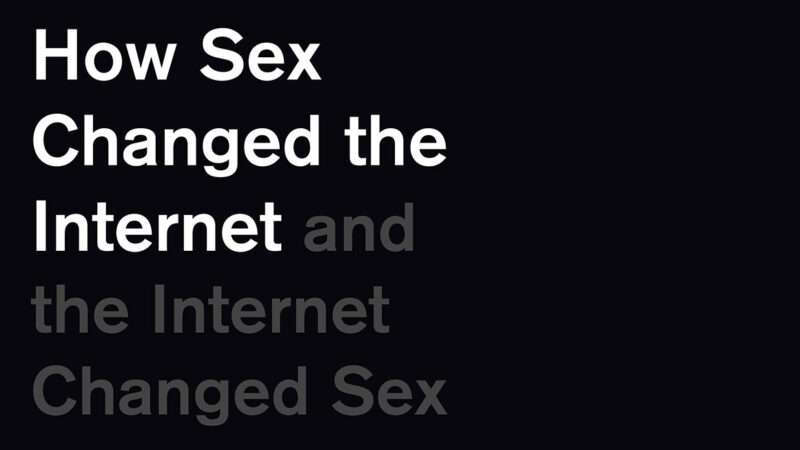
As someone who covers the intersection of sex and technology, I was primed to love Samantha Cole's How Sex Changed the Internet and the Internet Changed Sex. A great book could be written on this topic—but this is not it.
The book contains tidbits of interesting internet history: the "trans activist techno nun" who ran a bulletin board system (BBS) devoted to AIDS info, the stripping "Tech Sign Girls," the early use of nongendered pronouns (e, em, and eir) in a Usenet group. It nods to some ways sexually oriented entrepreneurs drove adoption of new technologies, and it touches on points—like how virtual worlds allow experimentation with different sexual personae—that showcase how sexual freedom can flourish online.
But these bits fail to coalesce into anything substantial about either of the book's title clauses. Cole needed more of something—data, her own analysis, expert commentary—that could illuminate broader themes. Instead, there's a lot of sex, and a lot of internet, but the content feels disjointed and somehow both incomplete and overburdened.
For instance, we get diatribes about sex robots, racial hierarchies among webcam performers, and deepfakes. These are certainly things related to sex and technology, and the book gives adequate surface-level overviews of them. But if there's anything they can tell us about how sex changed the internet or the internet changed sex, Cole doesn't elaborate.
The book is also marred by vague animosity toward tech companies. For instance, she blames corporations for making the internet "sanitized and safe," even while acknowledging that in some ways the government demanded this, and that the same issues arose on noncommercial platforms. This bias sometimes borders on the absurd, such as when she blames Apple for killing the early BBS CommuniTree by giving computers to schools, since kids then bombarded the forum with offensive messages.
The post Review: 'How Sex Changed the Internet and the Internet Changed Sex' appeared first on Reason.com.







